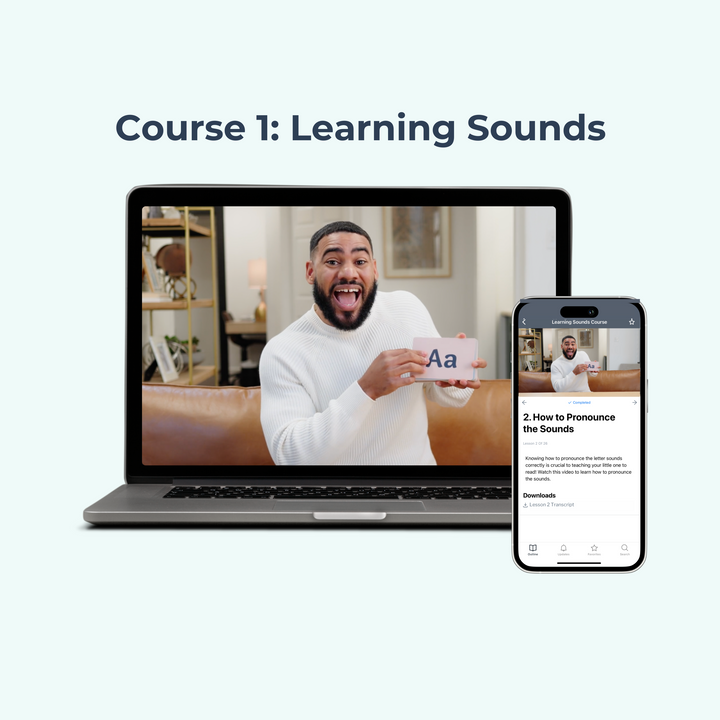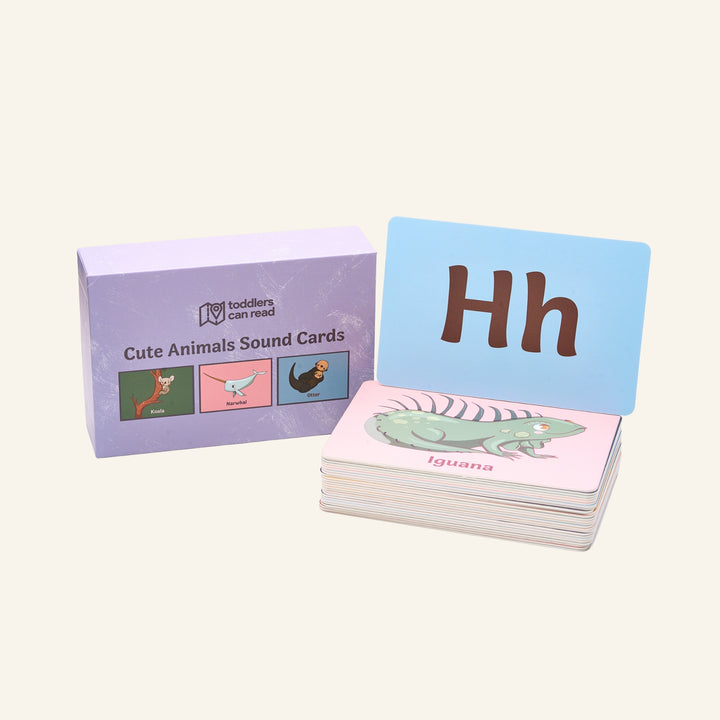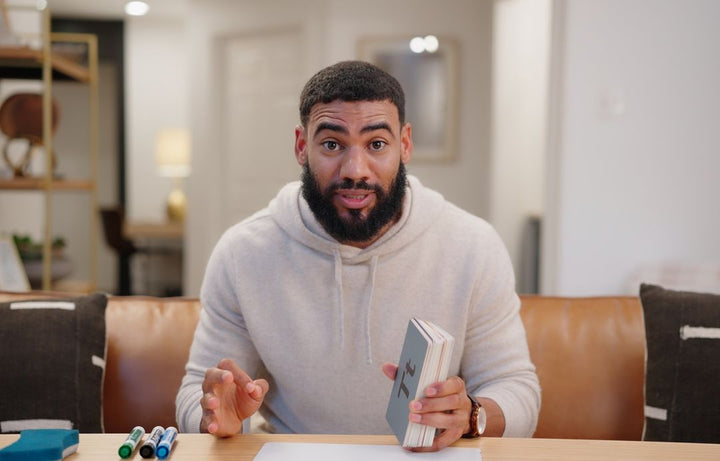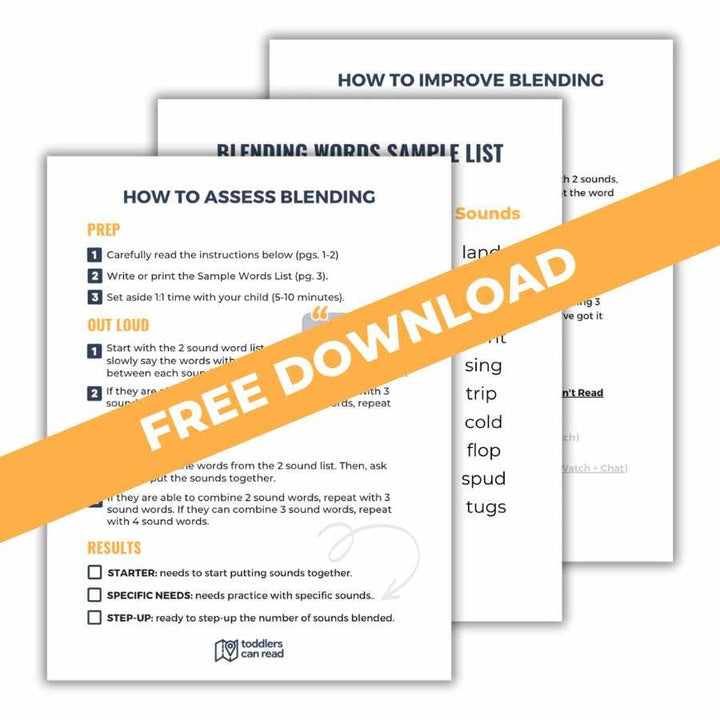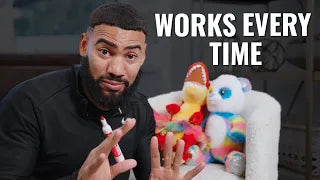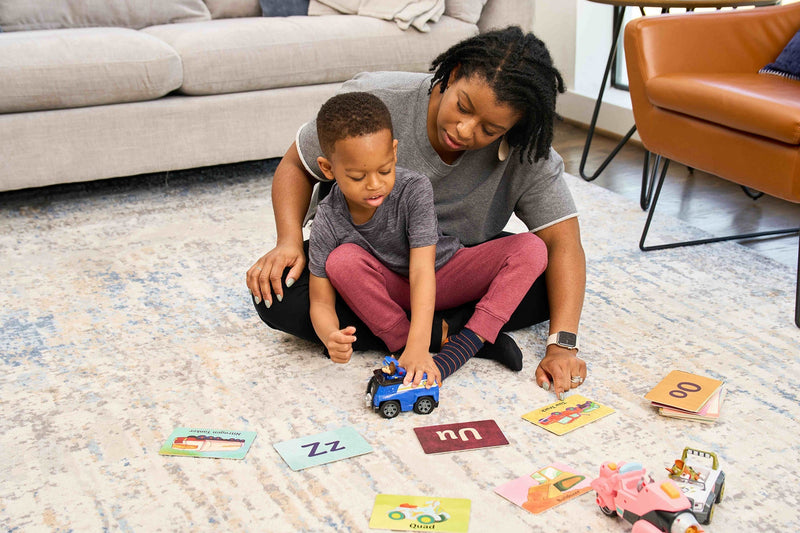You are not alone if your little one knows all of their sounds but can't seem to put them together. Getting a child from simply knowing the letter sounds to combining the sounds together into words can be stressful and difficult (for both of you). But it doesn't have to be.
Because while there are a lot of reading-related skills that might be standing in their way, there are also 3 big things that have nothing to do with reading that could be holding your child back from being able to master this skill of blending words. And learning what those 3 things are could be the key to mastering your blending journey.
1. Oral Language
I've worked with many, many families of little ones who have mastered the letter sounds but hit a wall when they got to blending. And with a lot of these families, I noticed a pattern: The parent will ask them to say something, like "hi" or "thank you"... and the child will say nothing.
Or the parent will ask their child a question, like "What did you learn at school?" and then accept a single-word answer, or a head motion, or very often nothing as a response to their question.
And here's the thing: every time we interact and communicate with our little ones is an opportunity to build (or not build) their oral language skills, which is one of the best ways to build their reading readiness. Meaning: We can't expect a child to repeat sounds back to us in a blending lesson if they don't repeat words back to us in their day-to-day life.
Does that make sense?
And I'll be clear here: I am not an early speech expert. But I do know that working on oral language is one of the best ways to improve your child's blending, that has nothing to do with reading.
When you improve their oral language skills by talking with them, having them practice and expand upon their own language, and begin to pay attention to the sounds in words, their blending skills will improve, too.
2. Behavioral Skills
This one is also pretty straightforward: If you want to get your child reading, they have to be able to follow directions.
And I'm not talking about sitting still for long periods of time or having your child act like a robot. I'm talking about your little one's ability to follow directions for a few minutes in a short lesson. We know that reading is a skill that needs to be taught (unlike certain skills that children can learn naturally or by observation). So your child won't be able to learn that skill of how to read a word if they aren't able to focus on it when you ask them to.
A lot of folks think this is all about their child's age. They think that as a child gets older, they'll just naturally get better at following directions.
But I can tell you this from experience: I've worked with 2-year-olds who followed every direction their parents gave them and with 6-year-olds who wouldn't even look at a flashcard... Age has nothing to do with it.
Because getting a child to follow your directions is about skill, not about age. And this skill is built throughout the day, not just during a reading lesson. It's all of the directions you give your child over the course of the day and whether they're able to follow those directions that will give you the best indication as to whether they'll be able to follow your directions during a reading lesson.
So if your little one doesn't do what you ask during other day-to-day activities, you can't expect them to magically just begin to follow your directions during the learning time.
And I'm not going to tell you that this is an easy skill to learn, but I will tell you that any parent CAN learn how to do it. If you need more support with your child's behavior, check out one of my other recent blogs: 8 Tips That Will Help ANY Child Follow Your Directions.
3. Strong Routine
Finally, your kid needs a strong, consistent routine to be successful during a blending lesson.
Creating strong routines is an important part of all aspects of a child's development, and learning to read is no different. There are 4 components of a strong routine that will set you and your little one up for success:
TimeDecide what time you will practice with them every day. This should be a time when you and your little one are at your best. Think of when you are able to be focused, productive, and patient with your child, and stick to that time every day.
PlaceIdeally, you'll be able to set up a special place that's just for learning. Your little one will know that that's where they go every day to focus on reading.
SpaceHere, I'm talking about the energy, the emotion, and the attitude you have going into a lesson. You don't want this to be a time they dread- you want it to be a time they love and are excited about. Focusing on keeping your energy calm, patient, and loving will help the learning space feel warm and inviting.
TransitionsHow your little one gets into the lesson and leaves the lesson really matters. Try to make sure you do the same thing to start the lesson every day, maybe give them a countdown so they know the learning time is coming. Then when the lesson is over, take a minute to celebrate so your child knows they are finished and they can leave the lesson feeling proud. This will help the lesson flow smoothly and feel like a regular part of their day.
And when they are ready to read...
Once you are confident that your child's oral language development, behavioral skills, and routine have set them up for success, you can jump back in with the blending lessons and watch them start to combine those sounds together into words!
My Blending Words Course includes a bunch of resources to help make this easier for you and your little one(s):
- On-Demand Course Videos
- Detailed Course Handouts
- TCR Decodable Books (designed specifically to go along with the course)
- Customizable Lesson Plans to fit your child's needs
- "Done-For-You" Word Lists to save you time during your lessons
- Achievement Certificates to celebrate your child's hard work
- Full Lesson Examples of real-life parents teaching their 2, 3, 4, and 5-year-old children how to read
I know this is a lot. But it's important. And identifying which of those three things (oral language, behavior, routine) is missing right now will be the key to success down the road.
It might not be easy, but nothing worthwhile is.
You got this!
